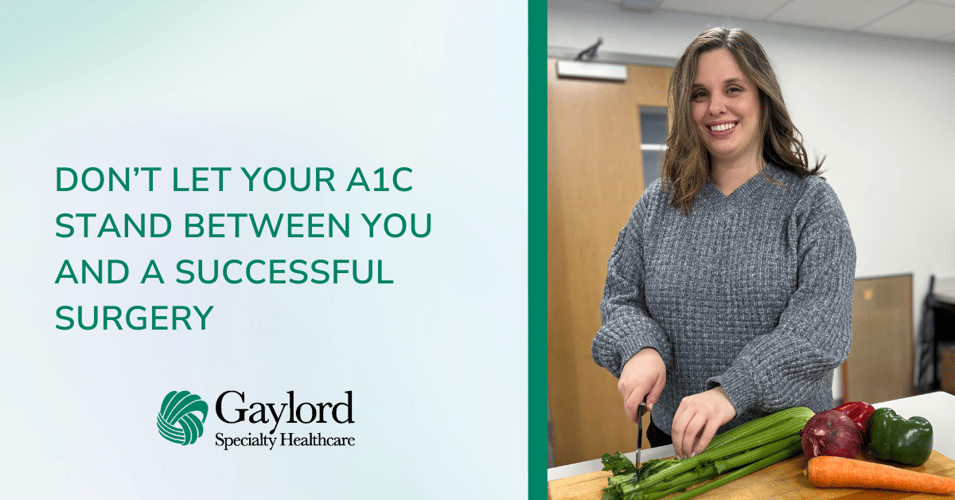By Elizabeth Glass, MHA, RDN, CDN
The New Year often brings a renewed focus on health, and it’s no surprise that most resolutions are related to well-being. But we also know that many people struggle to keep those resolutions past February. Why? Because all too often, they aim too big, too fast.
As a registered dietitian, I’m here to remind you that small, sustainable changes are the key to lasting success.
Why Resolutions Fail - and How to Fix It
Most people take an “all-or-nothing” approach when making New Year’s goals. They cut out entire food groups, sign up for workout programs, or set high expectations. When life gets busy, these changes become impossible to maintain - and are often abandoned.
Health isn’t about being perfect. It’s about making progress, one small step at a time. If you miss a walk or have an off day, that’s okay. What matters is you keep on going.
As a dietitian, I remind my patients that every step counts. If you drank one more glass of water today, that’s a win. If you added veggies to your dinner, you’re making progress. When you focus on what you can do, instead of what you can’t, you’ll build habits that stick.
Think “Small” to Make “Big” Changes
When it comes to creating healthier habits, smaller, more achievable steps are often the most powerful. Here are a few simple changes to start with today:
- Drink more water. Start by swapping one sugary drink for water each day. Small swaps add up! Not a fan of water? Add a lemon or orange slice.
- Move more. As little as ten minutes of walking after a meal has been clinically proven to lower blood sugar spikes and boost energy.
- Balance your plate. Adding a vegetable to each meal is a great start to readjusting your plate to increase protein and decrease excess carbohydrates.
- Pair carbs with protein for snacks. Instead of eating crackers or fruit alone, pair them with peanut butter, yogurt, or cheese to keep blood sugar stable and keep you fuller longer.
The beauty of these small changes is that they’re achievable. Over time, they can lead to real progress, whether your goal is improved energy, better blood sugar control, or just feeling healthier overall.
How Can a Dietitian Help?
Too often, people define health by the number on the scale. While weight can be one measure of health, it’s far from the only one. Other goals like increasing energy, reducing stress, managing chronic conditions, or repairing your relationship with food are just as important and sometimes even more meaningful.
For example, medications like Ozempic or weight loss surgery may seem like quick fixes, but they don’t address the root of the problem. A dietitian can help you understand how you got here in the first place and guide you to:
- Help you set realistic and sustainable, tailored goals that build on your current habits.
- Break down big goals into small steps you can achieve day by day.
- Offer evidence-based guidance so you can navigate health trends and misinformation.
If you need guidance, support, or just someone to help you stay accountable, Gaylord’s outpatient dietitians are here to help. Together, we can turn those New Year’s resolutions into real, sustainable changes that improve your health and your life.
Take the first step toward better health by contacting us today for a personalized nutrition plan. Please ask your doctor for a referral or contact Elizabeth Glass, MHA, RDN, CDN at (203) 741-3393 or eglass@gaylord.org.
Here’s to a healthier, happier year - one small step at a time!
This content is for educational purposes only and is meant to provide general information. It is not a substitute for professional medical advice, diagnosis, or treatment. Always consult your healthcare provider with any questions or concerns about your health. In case of a medical emergency, contact your doctor or call 911 right away.


